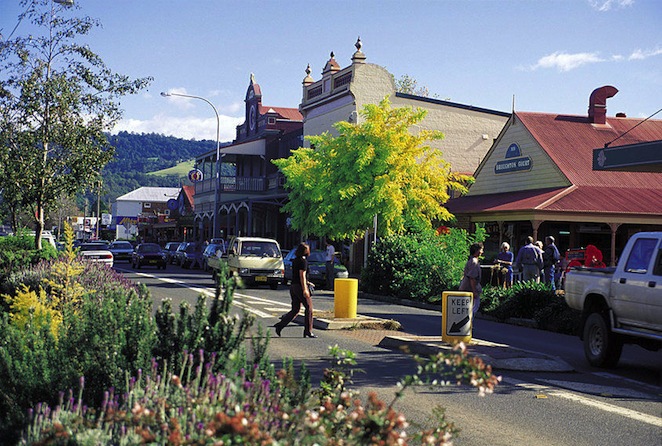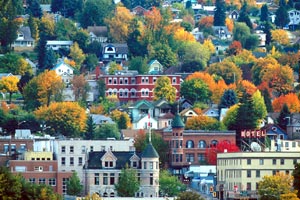Belgium
Find Eduxpress Programmes
Belgium is literally one of the most multicultural places on Earth, especially since the country is composed of three regions, each one corresponding to one of the three official languages (Dutch, French, and German). Known as the heart of Europe, Belgium is a hub of international cooperation and networking, offering an enriching educational experience
Belgium is steeped in history and has a unique mix of cultures. Here, you will discover many medieval castles and historical sites - like the battlefield of Waterloo.
Around half of all students enrolled in Belgian universities and colleges are international, and you’ll benefit from a high standard of education with a great research focus.
International rankings often list Belgian universities among the best higher education institutions in Europe. The most popular areas of study are Social Sciences (e.g. Economics, International Relations, Political Science), the Humanities, Journalism, and Medicine.
In Belgium, tuition rates vary based on your nationality, the region where you study, the type of university, the chosen academic programme, and so on. One thing to keep in mind is that the tuition policy is fair and the universities offer scholarships and grants.
On average, internationals can expect to pay anywhere between 800 and 9,000 EUR per academic year. As a broad rule, fees are lower for EU/EEA students.
Belgium's high level of globalisation is an inevitable positive consequence of the international collaboration between Belgian institutions (both public and private) and other organisations from all over the world. This means that foreign citizens will feel at home and won't take too long to settle and enjoy the local lifestyle.
In addition to the three official languages — Dutch, German, and French — a significant number of Belgians also speak English. So if you dream of becoming a polyglot or you simply want to know the basics of as many languages as possible, you should definitely study in Belgium.
There are numerous historic buildings and places you can visit during your time as a student. Here are only a few examples to get you started: the Grand Palace, the Atomium, Ardennes, the medieval tower Belfry of Bruges, the Mini-Europe miniature park, Gravensteen — the 10th century castle, the Royal Palace of Brussels, the battlefields of Flanders, etc.
Due to its numerous universities, Belgium offers study programmes for all degree levels (Bachelor’s, Master’s and PhD) in every field you could ask for. You can study plenty of Art and Design degrees, as well as Business and sciences programmes, such as Medicine, Finance, Political Science, Marketing, or Information Technology.
Here are some of the most popular study options in Belgium
Belgium has around 10 student cities and each one offers you plenty of social and cultural activities. From museums and beautiful natural surroundings to fancy bars and charming shopping centres, you can have some great and memorable leisure time in Belgium.
Check out some of these cities and learn more about what it is like to study there:
You can apply through the official website dedicated to higher education studies in Belgium.
You can also contact your chosen university first and check if you can simply apply through their website. Carefully check all the required application documents and make sure they are all translated into English. For instance, an internationally recognised Bachelor's degree or equivalent is the main requirement when enrolling in a Master’s degree at a university in Belgium.
Make sure to know what the language requirements are, and whether you need to prove skills in English before enrolling in a degree programme.
Show how you performed as a student, and be sure to know what your Grade Point Average (GPA) was during your studies.
To help your chances of going to Belgium, be sure to apply to more than one university!
Let's take a closer look at tuition and living expenses in Belgium:
In Belgium, tuition fees vary based on a variety of factors: your nationality, the type of university, the region where you study (Belgium is split into 3 regions), and so on.
EU/EEA students can expect lower tuition fees than non-EU/EEA students. Still, Belgium universities are known to be fair when they set tuition fees. If the price is higher, it means the study programme is more specialised or scholarships might be available.
Private universities are usually more expensive than public ones. Check out the official website of your university to find you what tuition applies to you. You can always contact a university representative for other questions or advice.
The most convenient accommodation options are university halls of residence, for which most students only pay between 200 and 450 EUR per month.
Renting or sharing an apartment is a bit more expensive, costing around 500–700 EUR per month. For this type of accommodation (private rent), you also need to pay between 100 and 400 EUR for monthly utilities.
EU/EEA students enjoy the same benefits as Belgian citizens in terms of access to free or reduced-cost healthcare. To benefit from these services, you should hold an EHIC (European Health Insurance Card). You can arrange for an EHIC card from your home country, before your departure to Belgium.
Students coming from non-EU countries will need to arrange private health insurance before their departure.
Belgium is not an expensive country when it comes to food costs. Supermarkets have affordable prices, meaning that your monthly food bills would generally stay around 200–300 EUR.
Belgium has fantastic cuisine, particularly in terms of desserts. So, considering it isn’t so expensive, you should definitely treat yourself to a nice restaurant every once in awhile. A meal in a mid-range restaurant is between 8 and 15 EUR.
Overall, the average living costs for students in Belgium are between 750–1,100 EUR/month.
Belgium is a country in northwest Europe bordered by the Netherlands, Germany, Luxembourg, and France. Belgium is a federal monarchy, divided into three main regions: the Dutch region of Flanders, the French region of Wallonia and the capital region of Brussels – a mix of French and Dutch. However, English is also widely spoken, especially in Brussels.
This multicultural environment offers a lesson in tolerance, openness, and determination.
Belgium has the highest quality of life in the European Union. Since Belgium is situated at the crossroads of Europe, anywhere you’ll live, you’ll be close to major capitals such as Paris, Amsterdam, London, or Berlin (so you should definitely pay a visit to these iconic cities).
Belgium has a rich and diverse economy with the most thriving sectors being chemicals, food processing, pharmaceuticals, automobiles, electronics, and machinery fabrication.
You would experience four different seasons in Belgium, with cold and snowy winters and warm to sometimes hot summers.
Iconic places to visitWhile in Belgium, you can admire splendid architectural buildings and bridges that combine Gothic and Romanesque elements. But you can also have a fun night out in one of the many bars and clubs.
Here are some of the most beautiful places to see in Belgium



